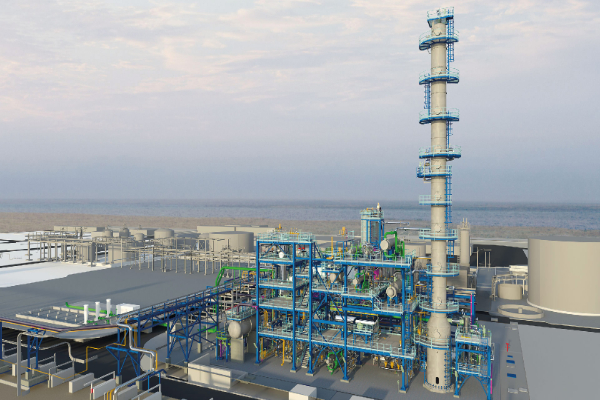The new plant will have a production capacity of 80,000 tons of isopropyl alcohol

Hydroalcoholic gels plant in Spain, Photo: Cepsa
Cepsa continues to develop and diversify its chemicals business by starting the construction of a new isopropyl alcohol (IPA) plant, the first of its kind in Spain. This product is used not only in hydroalcoholic gels, but also in household and industrial cleaning products.
The new IPA plant, backed by a €75 million investment, will be located in Palos de la Frontera (Huelva) and will be the first plant of its kind in Spain to use green hydrogen and capable to replace fossil-based raw materials in the production of isopropyl alcohol with sustainable alternatives. This will expand Cepsa Química's range of more sustainable products, in line with Cepsa's Positive Motion energy transition strategy.
For José María Solana, CEO of Cepsa Química, the IPA project “is a very important step in our Next Chemicals in Positive Motion strategy. The plant will be linked to our Andalusian Green Hydrogen Valley, ensuring that our activities are fully in line with our commitment to advance the fight against climate change and accelerate the ecological transition. It will also strengthen Spain's supply autonomy in these types of products.”
The Regional Minister of Industry, Energy, and Mines of the Government of Andalusia, Jorge Paradela, emphasized that Cepsa's new chemical plant in Palos is "a tangible example of how innovation, sustainability, and job creation can go hand in hand, driving economic growth and the well-being of European society."
“It is demonstrated that energy at competitive prices is a factor in industrial location," and he highlighted that it will contribute decisively to "Spain gaining strategic autonomy by being the first facility in the country to produce the raw material for making renewable-origin hydroalcoholic gel."
Isopropyl alcohol is also used as a solvent in the manufacturing of paints, coatings, and printing inks, as well as an intermediate in the production of key ingredients in the pharmaceutical, cosmetic, and agrochemical industries.
The new facility, scheduled for completion by the end of 2025, will have a production capacity of 80,000 tons per year. It’s estimated that approximately 400,000 hours of work will be required to build this new plant, including both direct and indirect labor.
Subscribe to our newsletter & stay updated.